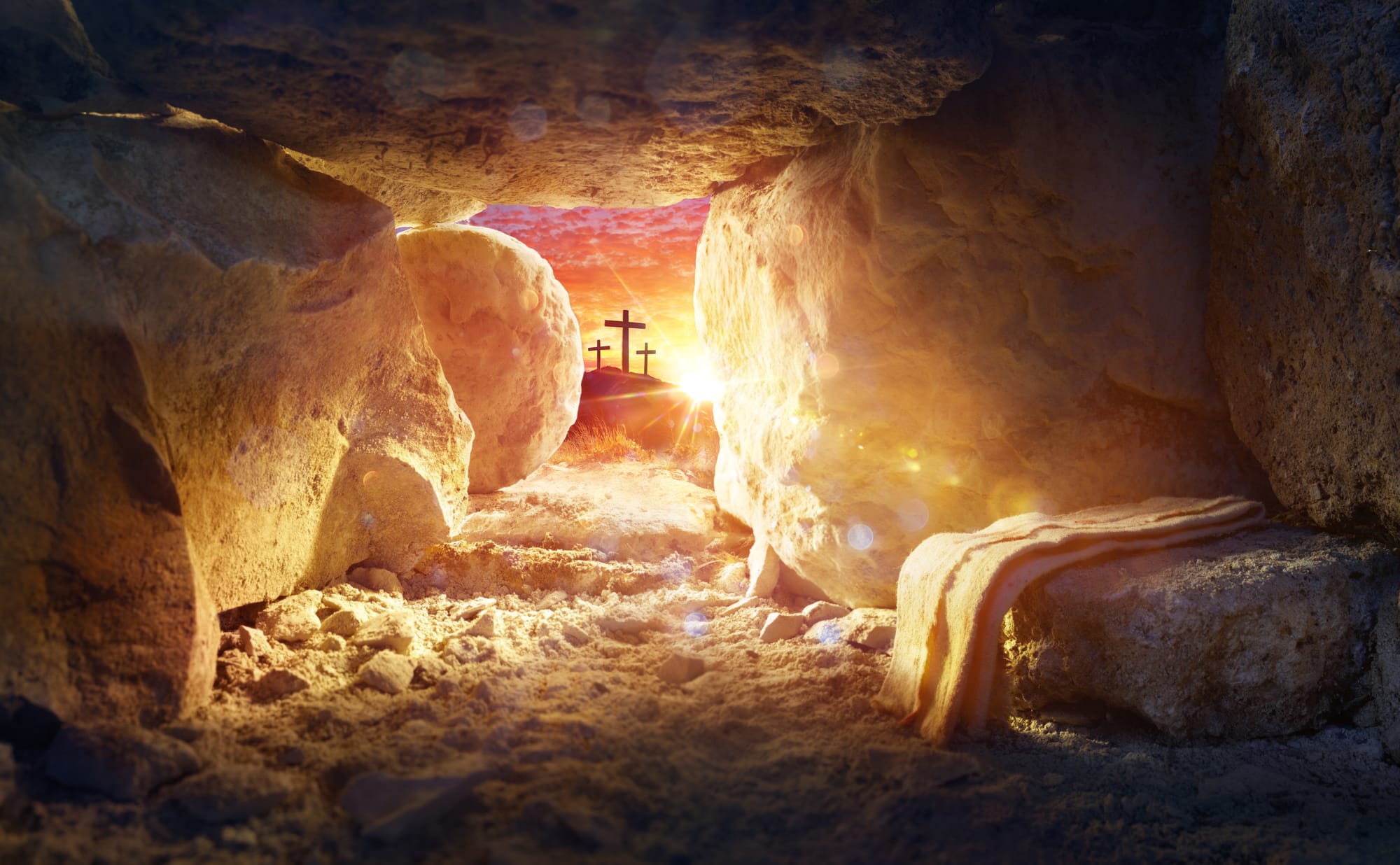5 dads from the Bible who light the way for all dads
Salt&Light wishes all dads a Happy Father's Day!
by Christine Leow // June 18, 2021, 2:17 pm

Fathers, as you celebrate and are celebrated for leading your family, take time to ponder the example and encouragement of five biblical fathers who faced the challenges you do, but also counted on the resources from God that you have. Photo by Dragon Pan on Unsplash.
Yes, parenting has many rewards. Goodnight kisses and morning hugs. When their little hand reaches out for yours for assurance.
In those moments you see the person your child will grow up to be and feel pride swelling within you.
Like God, dads have to be equal parts tough and tender, a balance not easy to strike.
But parenting is also tough.
And being a dad may well be the toughest. Dads do not get as much recognition or thanks as mums. They engender less warm, fuzzy feelings.
Mother’s Day comes with plenty of publicity and gift options. Father’s Day, in comparison, tends to be a more muted affair.
Tougher still is the fact that Godly dads are held to the highest standard of all – that set by our own Abba Father. Like God, dads have to be equal parts tough and tender, a balance not easy to strike.
As we take the day to honour the fathers in our lives, let us also take heart by looking to the example of five biblical fathers who knew both the heartaches and happiness of fatherhood.
1. Noah: The righteous heritage (Genesis 6-9:17)
If we think we live in tough times, wicked times, unprecedented times, Noah lived in times even worse.
The Bible tells us that, in the days of Noah, the wickedness of the human race had become so great that “every inclination of the thoughts of the human heart was only evil all the time”. In fact, it was so horrific that it broke God’s heart.
If we think we live in tough times, wicked times, unprecedented times, Noah lived in times even worse.
If you think these challenging times make it hard to live right and raise your family to do the same, Noah must have thought it, too.
Yet, he did it. The Bible tells us that Noah was a righteous man, blameless among the people of his time, who walked faithfully with God.
He demonstrated faithfulness with obedience in action. Against tradition (there had been no boats till Noah built the ark), common sense and societal conventions, Noah embarked on the gargantuan task of building the ark. He obeyed God to a tee and “did everything just as God commanded him”.
It was that faithfulness that led God to spare, not just him, but his whole family – wife, three sons and their wives.
Fathers, we live in a wicked, broken, sin-soaked world. It is difficult to raise children while going against the tide.
But you have the testimony of Noah who hung in there and walked faithfully with God, and left for his family blessings “for perpetual generations”. Is that not the best legacy any father can leave behind?
2. Abraham: The ultimate sacrifice (Genesis 22:1-19)
Fatherhood did not come easily to the father of many nations. He was promised a son (Genesis 17:19). But it would be nearly three decades before that promise came to pass (Genesis 21).
Then, he “took the knife to slay his son”. Abraham spared nothing.
Imagine the wait. Then, imagine the joy when Isaac came along. Now, imagine the anguish when Abraham was told to “sacrifice him there as a burnt offering on a mountain”.
We know God was testing Abraham. Abraham did not. He took God seriously.
So, Abraham loaded up his donkey and went. He took the wood for the burnt offering and put his son on it. Then, he “took the knife to slay his son”.
Abraham spared nothing.
In the great debate of child-led parenting versus parent-led parenting, the Bible has given us another model – God-led parenting – where God’s will and way triumph over all.
Abraham lived that. Between the son he loved and the God he worshipped, he chose God and released his son.
Would you do the same? Would you release your own hopes and dreams for your child and embrace God’s vision for him instead?
3. Moses: The importance of discipline (Exodus & Numbers)
The Bible says little of Moses and his relationship with his biological sons, Gershom and Eliezer. But the books of Exodus and Numbers are dedicated to Moses as the father of the Israelites because was he not their father?
He gave them the rules to live by and would not budge even though it meant earning their displeasure.
Like a father, he led them, provided for them, interceded for them, disciplined them and protected them. Like a good father, he pointed them to God and taught them His ways.
In turn, the Israelites did what children do. As they traced and re-traced their steps in the wilderness, they complained, quarrelled and rebelled.
They would not eat what was put before them (Numbers 11:4-6). They would not do as they were told (Exodus 16:27-30). When dad was away, they partied wildly without permission (Exodus 32).
But Moses the Lawgiver held the line. He gave them the rules to live by and would not budge even though it meant earning their displeasure.
Fathers are called to be disciplinarians (Ephesians 6:4). It is not an enviable task playing bad cop. You will win no popularity contests and get no thanks. Moses did not.
But when the day is done and your children are ushered into the Promised Land, you will know that you have done right by them. Moses did.
4. Joseph: The faithful steward (Matthew 1:18-25)
Joseph, the earthly father of Jesus, had fatherhood thrust upon him. Even before his betrothed became his bride, he was asked to be father to a child he did not father.
Joseph was a good man. He did not want to publicly shame his fiancée, though it was well within his right to do so.
He understood deeply that, though the Child was not biologically his, he had been entrusted to care for and guide Him.
He was a Godly man who was “faithful to the law”. So, when God eventually set him straight, he obeyed without question and “did what the angel of the Lord had commanded him”.
After the account of Jesus being left behind in Jerusalem (Luke 2:41-52), Joseph does not appear in the Bible anymore.
But he must have continued in obedience to raise Jesus right because Jesus did grow in wisdom, statue, and favour with God and man (Luke 2:52) and He did fulfil His earthly ministry as the angel of the Lord had revealed to Joseph.
Joseph was the ultimate steward. He understood deeply that, though the Child was not biologically his, he had been entrusted to care for and guide Him.
As believers, we are called to be stewards of many things – money (Luke 16:11), gifts (1 Peter 4:10), the Gospel (1 Corinthians 4:1-2).
As believers, we need to be keenly aware that we are called to be stewards of our children, too. We do not own them. They are God’s own.
Instead, we have been entrusted to care for and guide them to fulfil the destiny God has laid out for them just as Joseph did for Jesus.
5. The royal official: The promise holder (John 4:43-54)
The man had no name. Though he had authority as a royal official, he had no power, certainly none to save his dying son.
Though he did not see the healing take place, he took Jesus at His Word.
What he did have was hope. He must have, because he travelled a four-day journey from Capernaum to Galilee just to beg Jesus to heal his son.
He did not get a “yes” to his request. Instead, he got a test.
Jesus rebuked him – was he there to be a sign-seeker like the rest or was he a Saviour-seeker?
And he passed the test.
Though he did not see the healing take place, he took Jesus at His Word and believed that as Jesus had promised – “your son will live” – so it would be done.
And it was.
God has many promises for you as a father and for your children as believers. You may not see all of them come to pass in your child’s life. Yet.
But would you believe that as He has spoken, so it would be done? Will you trust God to be the promise keeper in your children’s life?
RELATED STORIES:
New course launched to help churches build disability-inclusive communities
We are an independent, non-profit organisation that relies on the generosity of our readers, such as yourself, to continue serving the kingdom. Every dollar donated goes directly back into our editorial coverage.
Would you consider partnering with us in our kingdom work by supporting us financially, either as a one-off donation, or a recurring pledge?
Support Salt&Light


